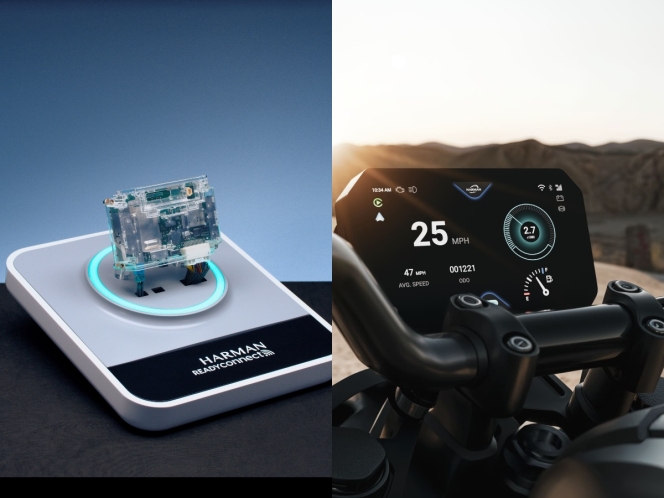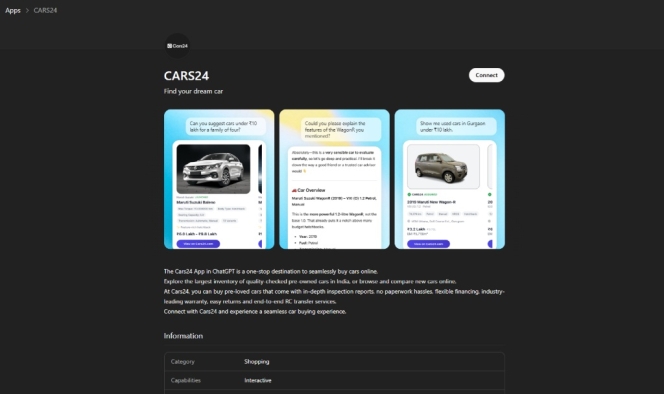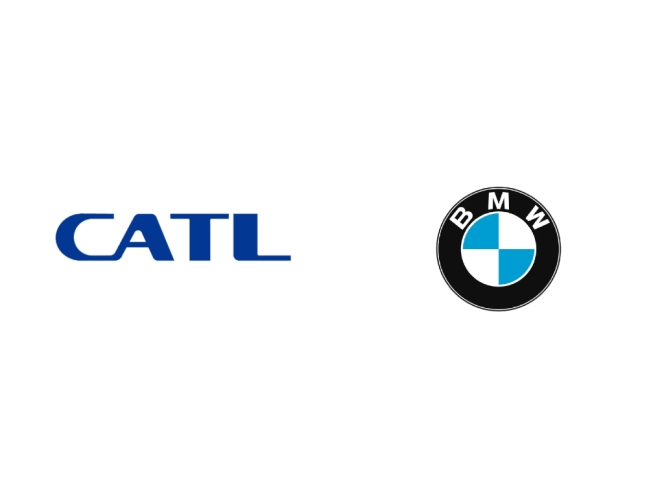Tata Technologies Launches #EngineeringASoftwareDefinedFuture Campaign
- By MT Bureau
- October 17, 2024
Tata Technologies, a global leader in engineering and digital services, has launched its new brand campaign, #EngineeringASoftwareDefinedFuture, aimed at empowering manufacturing companies accelerate their journey toward software-led intelligent products.
With the introduction of this new campaign, the company is also reaffirming its dedication to advancing the transformation of the automotive, industrial heavy machines (IHM) and aerospace industries via the use of software and digital technologies. With software and digital-led mechatronics solutions that cover the whole product value chain, from turnkey Software-Defined Vehicles (SDVs) to AI-powered smart manufacturing and intelligent software-defined enterprises, Tata Technologies is enabling industries to transition to software-differentiated products.
This new brand strategy, which was unveiled at ELIV 2024 in Bonn, Germany, highlights Tata Technologies' commitment to providing clients with software-led mobility solutions throughout the entire value chain. The company is assisting in modernising operations, increasing efficiency and delivering competitive, sustainable products that transform customer experiences from concept to service. Its leadership in turnkey product development and more than 30 years of manufacturing domain knowledge are combined with digital technologies. Over the next few years, Tata Technologies plans to dramatically increase its software and embedded work revenue as part of its growth strategy. This will demonstrate the company's dedication to providing cutting-edge, software- and digital engineering-led solutions that satisfy the changing demands of the market.
Warren Harris, CEO, Tata Technologies, said: “The #EngineeringASoftwareDefinedFuture campaign reflects the evolution of Tata Technologies as a leader in the software-driven transformation of industries in the AI era. We are empowering our clients with intelligent, connected solutions that redefine mobility and manufacturing IT systems needed by software-defined enterprises. Our strategic joint venture with BMW that we announced recently is a testament to this commitment, as we collaborate to develop next-generation Software-Defined Vehicles (SDVs) and Business IT solutions that push the boundaries of innovation and sustainability. Together, we are not just engineering better products – we are engineering a smarter, more sustainable future.”
Santosh Singh, EVP & Global Head – Marketing and Business Excellence, Tata Technologies, said, “Our new campaign, #EngineeringASoftwareDefinedFuture, represents our commitment to driving the future of smart, connected and sustainable products. By blending software-led digital engineering with our turnkey product development capabilities, we’re empowering the next generation of engineers to develop intelligent products and systems that redefine industries and make them future-ready. Together, we’re shaping a world where engineering solves humanity’s greatest challenges and transforms the way we move and connect.”
- HARMAN
- Samsung Electronics Co
- Viasat
- MWC Barcelona 2026
- Dhanaji Khade
- Sandeep Moorthy
- Snapdragon
- Shahriar Ravari
- Ready Ride
HARMAN Unveils Satellite-Enabled And Two-Wheeler Connectivity Solutions At MWC Barcelona 2026
- By MT Bureau
- March 03, 2026

HARMAN, a subsidiary of Samsung Electronics Co., Ltd., has introduced two connectivity platforms at MWC Barcelona 2026 designed to expand vehicle communications across terrestrial, satellite and two-wheeler segments.
In collaboration with Viasat, HARMAN has introduced in-cabin voice calling via satellite connectivity. The solution uses HARMAN’s Ready Connect Telematics Control Unit (TCU) and Viasat’s Mobile Satellite Services (MSS) constellation to provide communication in areas with no cellular coverage.
The system supports the 3GPP NB-NTN standard, allowing drivers to contact emergency services or roadside assistance in remote regions. The hardware utilises the Qualcomm Snapdragon Modem‑RF Gen 2 system for connectivity management. A future roadmap includes moving towards broadband satellite services to enable high-bandwidth media streaming for software-defined vehicles.
HARMAN also unveiled Ready Ride, its first end-to-end connectivity platform specifically engineered for the two-wheeler market. Powered by the Snapdragon Digital Chassis system-on-chip (SoC), the platform addresses the fact that less than 5 percent of motorcycles globally currently use telematics.
Key features of the Ready Ride platform include:
- Durability: IP69-certified sealing and rugged connectors designed to withstand dust, water ingress, and motorcycle-specific vibration levels.
- Safety and Security: Support for crash and tip-over detection, eCall functionality with a backup battery and planned features for stolen vehicle tracking and remote immobilisation.
- Rider Experience: Dual Bluetooth support and compatibility with Apple CarPlay and Android Auto to replace the need for handlebar-mounted mobile phones.
- OEM Efficiency: A scalable hardware and software stack that supports over-the-air (OTA) updates, reducing time-to-market and engineering rework for manufacturers.
Dhanaji Khade, Vice-President, HARMAN, said, “Through our collaboration with Viasat, HARMAN Ready Connect demonstrates how its satellite-enabled architecture... can extend communication beyond traditional terrestrial networks. This includes enabling voice services that facilitate immediate safety and emergency assist applications.”
Sandeep Moorthy, Senior Vice-President, Advanced Non-Terrestrial Services at Viasat, stated, “Satellite connectivity has arrived for the automotive industry. Through our collaboration with HARMAN, vehicles can now connect directly to our satellite network. That means major benefits for drivers all around the world; not only to stay safe when they’re outside of cell coverage, but to access the range of applications that space technology can bring.”
Shahriar Ravari, Ready Ride Business Lead, HARMAN, said, “Ready Ride brings our leading connectivity expertise to two-wheelers, reducing complexity with a standardised TCU foundation that helps OEMs launch faster, lower program cost, and scale confidently across regions and generations.”
Cars24 And OpenAI Partner To Integrate AI into Automotive Commerce
- By MT Bureau
- March 02, 2026

Cars24 has announced a strategic partnership with OpenAI to deploy artificial intelligence (AI) models and agents across its business operations. The collaboration focuses on embedding AI into vehicle discovery, sales, financing and post-purchase engagement across all markets where the company operates.
Unlike traditional pilot programmes, the initiative involves the integration of OpenAI’s technology into production environments to manage high-volume workflows. The partnership aims to transition the platform from manual automation to systems that assist in decision-making and data retrieval.
Cars24 has already deployed OpenAI’s Enterprise APIs across several internal and customer-facing functions. According to company data, the integration has resulted in a 50 percent increase in support resolution through assisted troubleshooting and an 80 percent reduction in turnaround time for service workflows.
Current deployment statistics include:
- Customer Outreach: AI agents now manage 20 percent of outbound conversations.
- Internal Adoption: 85 percent daily active usage of ChatGPT Enterprise among the central workforce.
- Functionality: Teams utilise the tools for data analysis, code development, and the summarisation of operational cases.
- Accessibility: The Cars24 application is now available on the ChatGPT Store for conversational vehicle discovery.
The partnership is designed to reduce dependencies on manual processes in automotive transactions. By embedding models into core workflows, the company intends to shorten decision cycles for buyers and sellers. Future phases of the rollout will include expanding these AI experiences to additional languages and product lines.
Vikram Chopra, CEO and Founder, Cars24, said, “Automotive commerce is operationally heavy by nature with multiple checkpoints, fragmented information and high-consideration decisions. Over time, we’ve realised that incremental improvements aren’t enough; the system itself needs to become more intelligent. Our collaboration with OpenAI is a step in that direction. By embedding AI into core workflows rather than layering it on top, we can reduce manual dependencies, improve consistency and shorten decision cycles. We don’t see this as a short-term advantage, but as foundational infrastructure that will compound in efficiency and trust over the years.”
- Tata Technologies
- WITTENSTEIN High Integrity Systems
- WHIS
- Andrew Longhurst
- Software Defined Vehicle
- SDV
- Nachiket Paranjpe
Tata Technologies Partners WHIS To Advance SDV Development
- By MT Bureau
- March 02, 2026

Tata Technologies has announced a partnership with WITTENSTEIN High Integrity Systems (WHIS) to accelerate the development of Software-Defined Vehicles (SDVs). The collaboration involves integrating WHIS’s SAFE RTOS into Tata Technologies’ automotive software stack.
The integration is designed to assist original equipment manufacturers (OEMs) and Tier 1 suppliers in meeting functional safety standards, such as ISO 26262. The partnership focuses on the transition towards connected, autonomous, and electrified mobility by providing safety-certified architectures for complex vehicle ecosystems.
SAFE RTOS provides real-time performance and reliability, serving as a component within the Tata Technologies SDV platform. This allows for the development of software architectures that support the increasing centrality of software in vehicle design.
The partnership combines Tata Technologies' experience in automotive software with WHIS's embedded software solutions to address requirements for scalable and certified systems.
Andrew Longhurst, Managing Director, WITTENSTEIN High Integrity Systems, said, “Software is at the heart of the automotive industry’s evolution. Our partnership with Tata Technologies ensures that OEMs and Tier 1 suppliers can leverage SAFE RTOS to achieve the highest levels of safety and performance in their software-defined vehicle architectures.”
Nachiket Paranjpe, President – Automotive Sales, Tata Technologies, added, “By combining Tata Technologies’ expertise in automotive software development with WHIS’s proven safety solutions, we are empowering our customers to accelerate SDV adoption and deliver cutting-edge mobility experiences.”
CATL And BMW Sign Agreement On Battery Passport And Decarbonisation
- By MT Bureau
- March 01, 2026

CATL and the BMW Group have signed a Memorandum of Understanding (MoU) to expand cooperation on battery supply chain data exchange and decarbonisation. The agreement was finalised in Beijing during a visit by a German delegation including Chancellor Friedrich Merz.
The partnership focuses on pilot projects for cross-border data transfer under the Battery Passport framework. The companies will collaborate on carbon accounting methodologies and tools to calculate the carbon footprints of power batteries.
The initiative utilises Catena-X, a standardised automotive data ecosystem, to align technical standards and policy frameworks. By testing Battery Passport applications, CATL and BMW aim to meet China-EU regulatory requirements and establish global data standards for the battery industry.
The cooperation is intended to improve digital management and ensure compliance with EU market access regulations regarding green product competitiveness.
The strategic relationship between CATL and BMW began in 2012. Previous collaborations have covered battery production, research and development and supply chain sustainability. This MoU shifts the partnership from product-level cooperation to institutional coordination for electric mobility.
CATL stated its intention to continue cooperation with international partners to use technology for the global energy transition and the sustainability of the automotive sector.






Comments (0)
ADD COMMENT